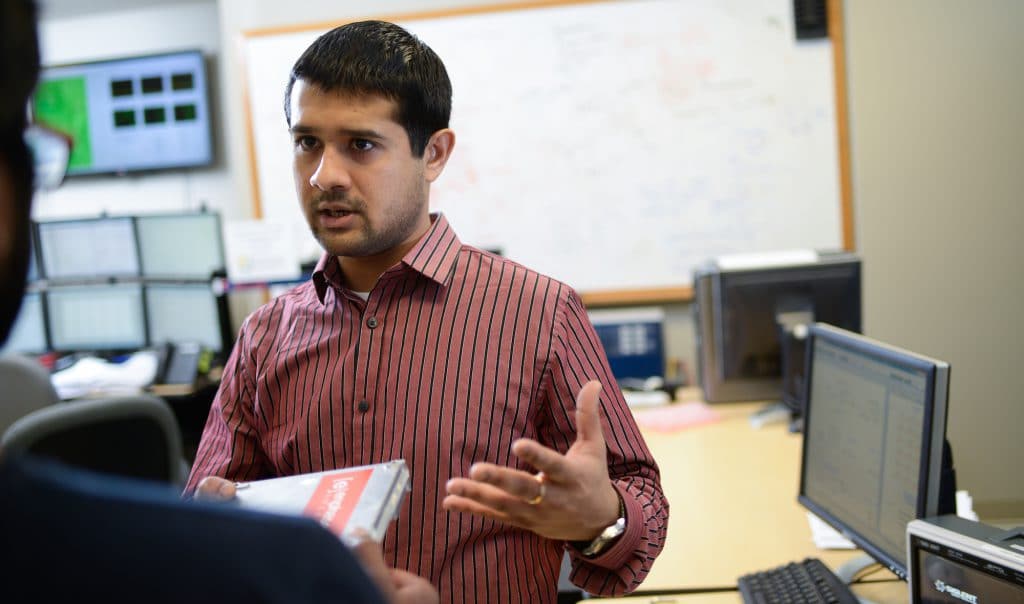
NC State’s 2018-19 class of University Faculty Scholars include Dr. Aranya Chakrabortty, an associate professor of electrical and computer engineering. These 20 early- and mid-career faculty receive this designation due to their significant academic achievements and contributions to NC State through their teaching, research and community engagement.
Nearly 150 faculty have been named University Faculty Scholars since the program’s founding in 2012. Faculty members selected as University Faculty Scholars carry the title for the duration of their faculty appointment at NC State and receive an increase to their base salary.
Chakrabortty’s research interests span all branches of control system theory with applications to large-scale electric power systems. His current research with the NSF FREEDM Systems Center includes system and control-theoretic problems for the U.S. power grid using Phasor Measurement Unit (PMU) data for Wide Area Monitoring Systems. FREEDM Research Center is sponsored by the National Science Foundation which provides funding for basic research and engineering and science. In the center, he figures out ways to prevent blackouts from happening in the grid.
He has received a variety of awards including the NSF CAREER Award in 2011. That award is given to young researchers to support those who exemplify the role of teacher-scholars through research, education and the integration of education and research within the context of the mission of their organizations. Chakrabortty’s proposal was how to design controller mechanisms for next-generation power grids when we have large amounts of renewables. “On the one hand they benefit a lot for our environment, but at the same time they will have some destabilizing effects which is where I come in and try to solve this,” he described.
Colleges may submit University Faculty Scholar nominations for assistant professors appointed for a second term, associate professors and professors within the first three years of their appointment. Senior faculty then review nominations, evaluating them on research and scholarship productivity, excellence in teaching and mentoring, and leadership in extension, professional societies and public service initiatives.